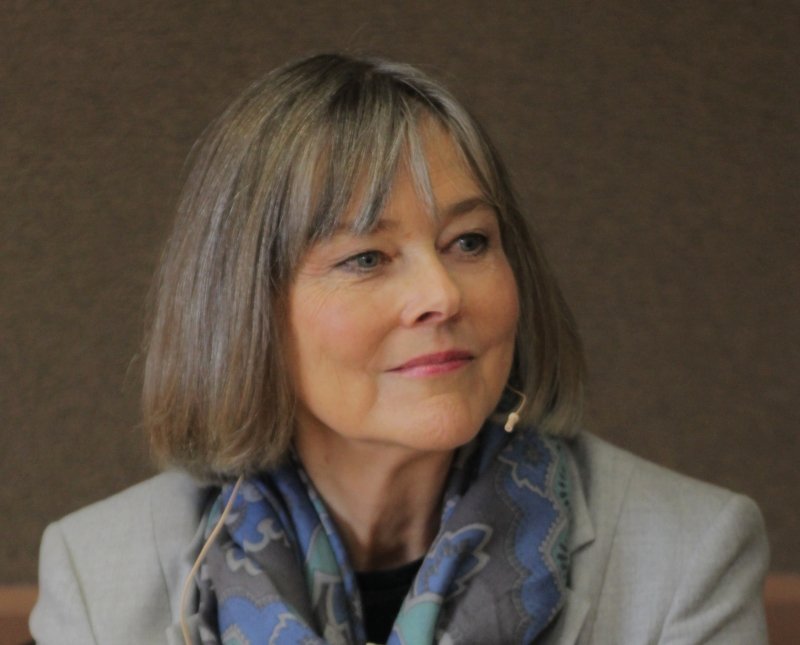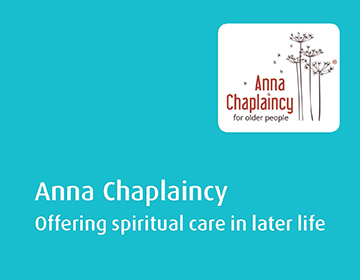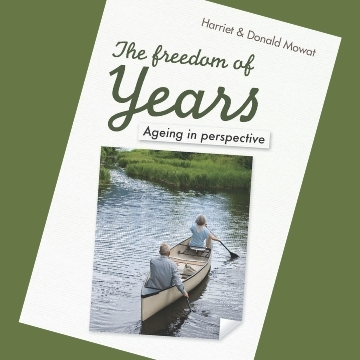Significant new evidence of the value and impact of BRF’s Anna Chaplaincy ministry was presented to an online audience on Thursday 20 May. Read on to find out more…
23 May 2021
Anna Chaplaincy: where we are a decade on
‘We’re in better shape than we could have dared to hope at the beginning of lockdown!’ announced the founder of Anna Chaplaincy, Debbie Thrower, at a lively, well-attended webinar on Thursday 20 May.

‘Necessity is the mother of invention,’ she said, highlighting the energy and imagination with which the Anna Chaplaincy network has responded to the challenges of the past year and more; a year in which, despite those challenges, 30 new Anna Chaplains have been commissioned across the country.
Anna Chaplaincy was founded in 2010 with the aim of supporting older people both spiritually and practically and to enable them to continue contributing to society through their experience, skills and wisdom.
Following a special tenth anniversary service in Christ Church Cathedral, Oxford, in February 2020, it was time to take stock: to evaluate the work to date and plan for the future. The results of that evaluation, combining an internal survey and external audit, have just been published, at a time when issues surrounding the care of older people have never been more centre stage.
‘To those they serve, Anna Chaplains are quite simply essential.’
Since 2014 the movement has been part of BRF, which promotes, resources and develops the initiative. Anna Chaplains are present with older people, their families and care staff in a multitude of ways: as friends, pastors and ministers, sharing conversation, hopes, fears, prayers and laughter. They are in family homes, communities and clubs, church groups, care and nursing homes, through joy and loss, life to death. To those they serve, they are quite simply essential.
Richard Fisher, chief executive of BRF, introduced the report:

‘Together, the internal survey and the external audit demonstrate the scale and scope of the work of Anna Chaplains across the country, and the genuine difference it is making to the lives of older people and carers, of all faiths and none, in care, private and community settings.
‘Our vision is as strong as ever: to see Anna Chaplains in every small- to medium-sized community in the UK, each contributing to the spiritual care of men and women in later life by being skilled listeners and hope-bearers. Anna Chaplains plant a flag in towns and villages up and down the land to signal the fact that older people matter.’
A ministry of love
The impact report highlights both quantitative and qualitative research findings. On average, each chaplain spends 12.6 hours a week in this ministry, amounting to over 100,000 hours, or 624 weeks, a year across the network. Of the Anna Chaplains surveyed, 94% believed that not enough is being done to support, include and make visible older people in our communities and that they could all accomplish so much more with larger teams and greater resources.
Speaking about the extended interviews she conducted with Anna Chaplains, carers and care home managers, respected external researcher Jenny Kartupelis, one of the report’s authors, said:
‘Love is the basis of Anna Chaplaincy, and shines through all their interactions. An integral part of this approach is to give time, because time honours and values the recipient, and restores their worth.’
The webinar on 20 May was attended by over 65 people, including a wide range of practitioners, representatives of major charities and care providers, as well as politicians and church leaders. Both Jenny and her co-author of the report, Julia Burton-Jones, gave presentations, along with Debbie Thrower and Richard Fisher.
‘Anna Chaplaincy ministry amounts over 100,000 hours, or 624 weeks, a year.’
Leon Steer, chief executive of Rapport Housing and Care said:
‘This report is remarkably helpful. Churches have got to wake up to the issues of an ageing population – just look at the majority of church websites and there’s a distinct absence of older people.’
Wider relevance
The survey and audit highlighted the issues of ageism – conscious or unconscious – that are already recognised as problematic in our society:
‘Older people want: to be less “invisible” and enabled to make a contribution; to find a sense of self and purpose; to have two-way relationships; and to be part of a community.’
A society which either sidelines a substantial number of its members or casts them as too frail to contribute is losing a valuable asset. Negative attitudes must change not only towards older people, but equally towards those who care for them, whether family or professional. This report affirms the contribution of Anna Chaplains and those in equivalent roles as significant agents of change.
Richard Fisher, in summing up, recalled an early conversation with Debbie in which she shared her vision for Anna Chaplaincy. She was on the lookout for a community of people who could see that attitudes to older people, both in the church and wider society, needed to be challenged, people who would say: ‘It’s not good enough. We need to do more. We’re going to do something about it!’
And that’s exactly what Anna Chaplaincy is doing, and will continue to do, building partnerships with other likeminded organisations to tackle ‘an issue so much bigger than any one organisation.’


The Freedom of Years
This positive, affirming book explores and reviews the meaning and purpose of our lives. The Freedom of Years helps those who want to undertake the journey by examining the ageing task, the inevitable changes and the possibilities of joy along the way.
Ten differences
Anna Chaplains said that the ten major differences they believed their ministry made were:
- older people feel loved and cared about
- gives older people we reach a sense of belonging
- helps us as a church to value older people
- helps older people to grow in faith
- ensures older people who are frail do not slip through the net
- helps us as a church to understand the needs of older people
- helps older people to find the meaning in life
- gives a voice to older people
- helps older people to meet and relate to others in their community
- helps older people to contribute to church and/or community.
About the researchers
Julia Burton-Jones carried out the quantitative survey. She is national church lead for Anna Chaplaincy with BRF and has also worked since 2015 as Anna Chaplaincy lead for the Church of England dioceses of Rochester and Canterbury.
Jenny Kartupelis MBE carried out the qualitative survey and wrote this report. With a background in inter-faith relations, she is a consultant and author who has been researching into the care of older people over the last five years.
